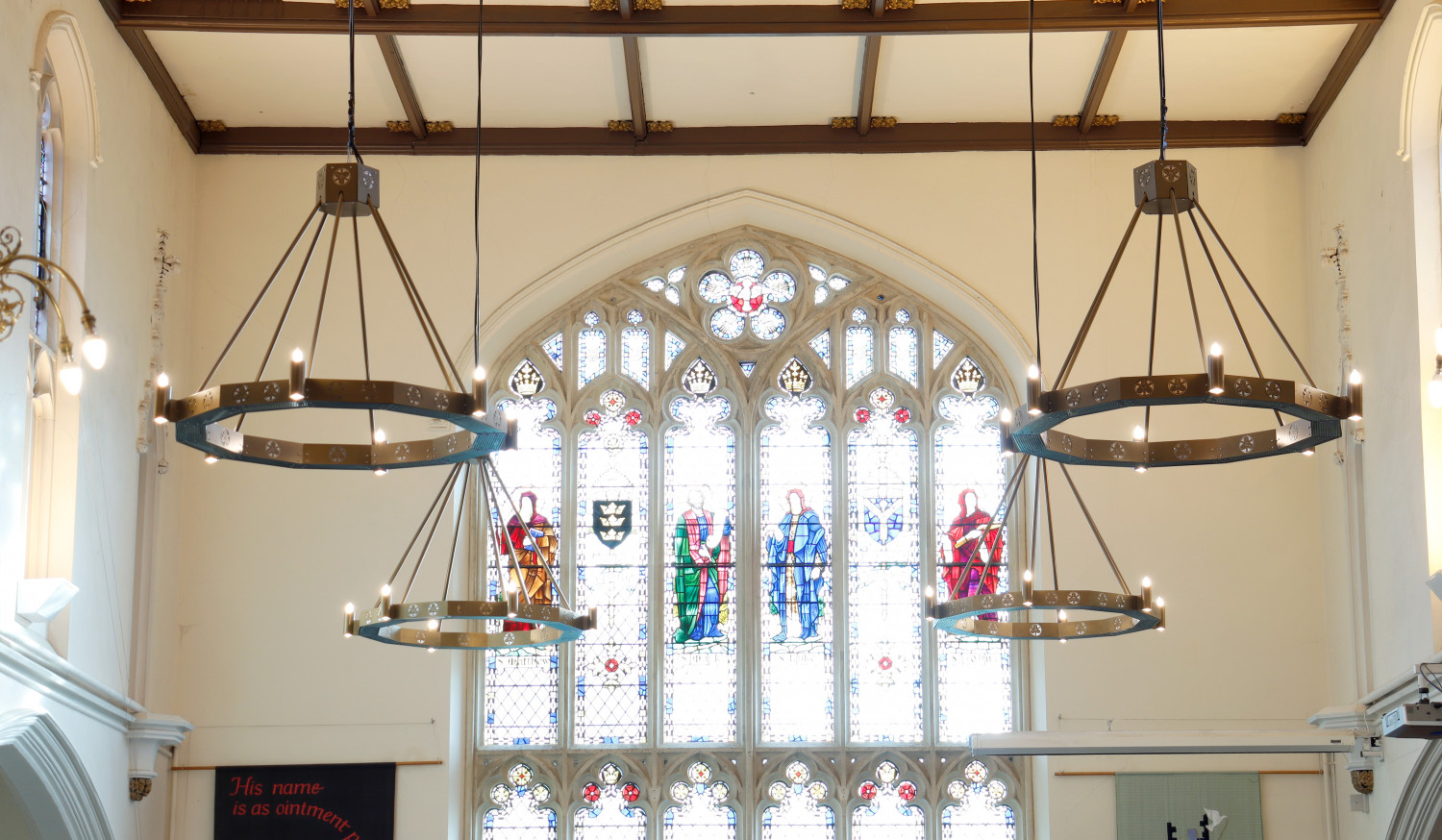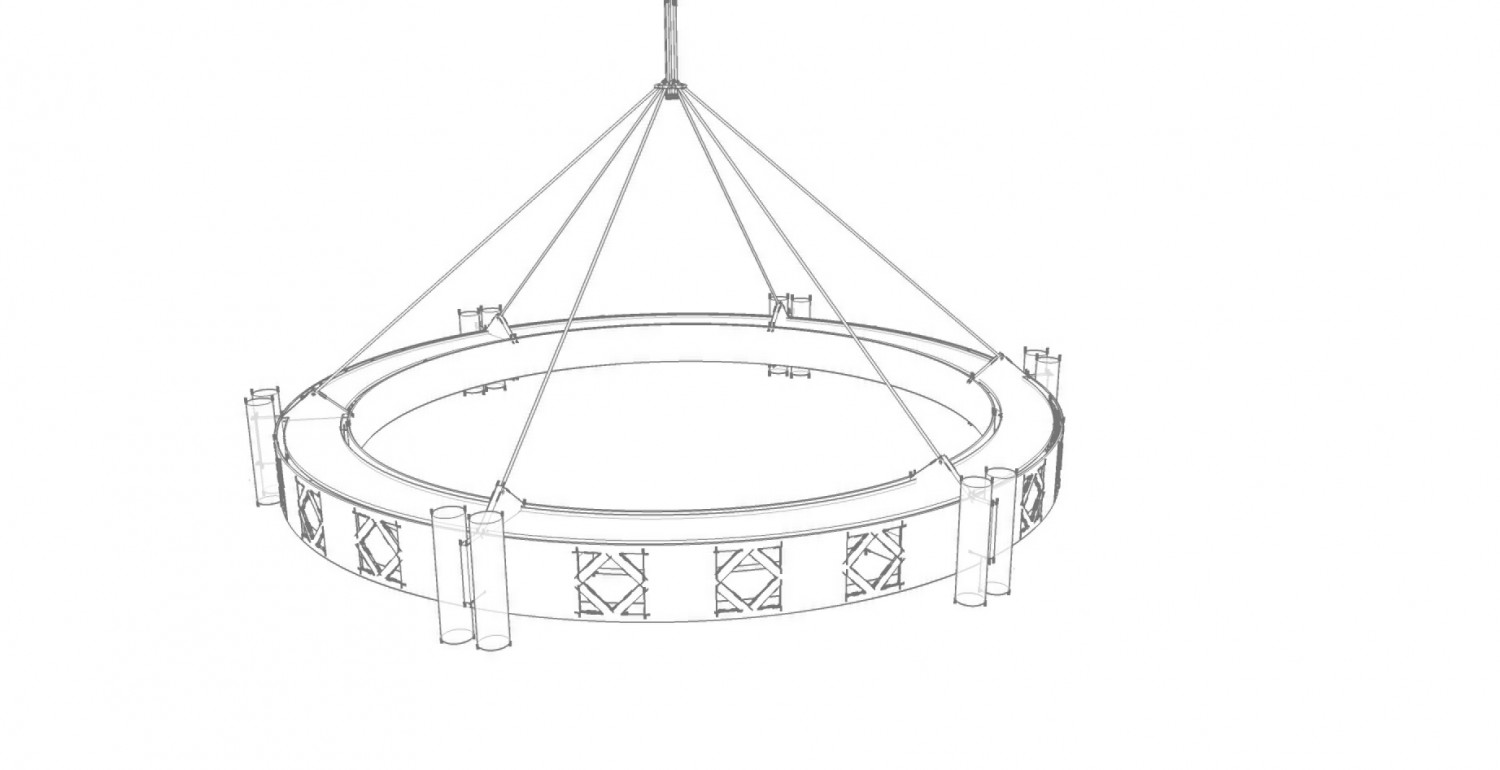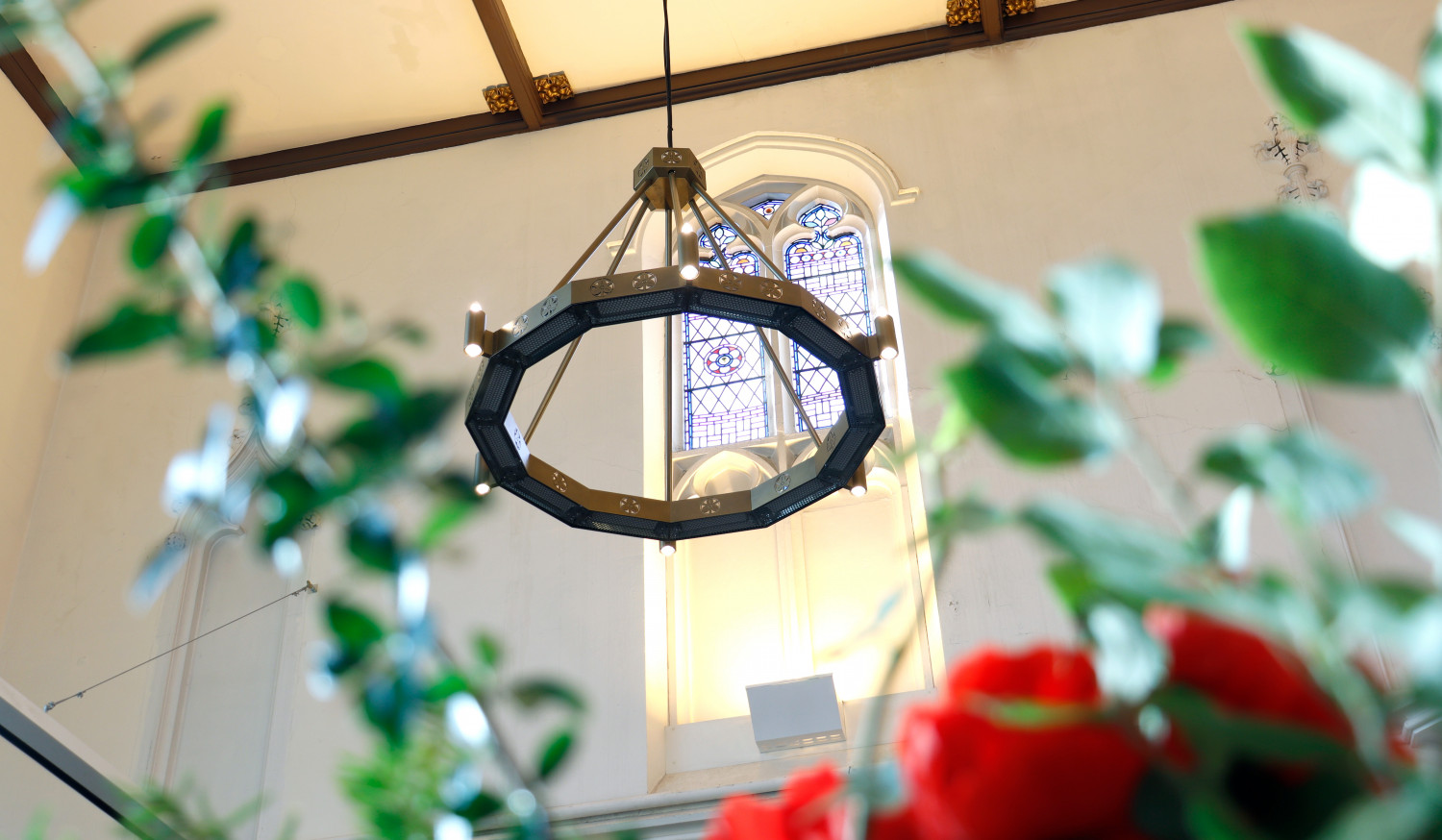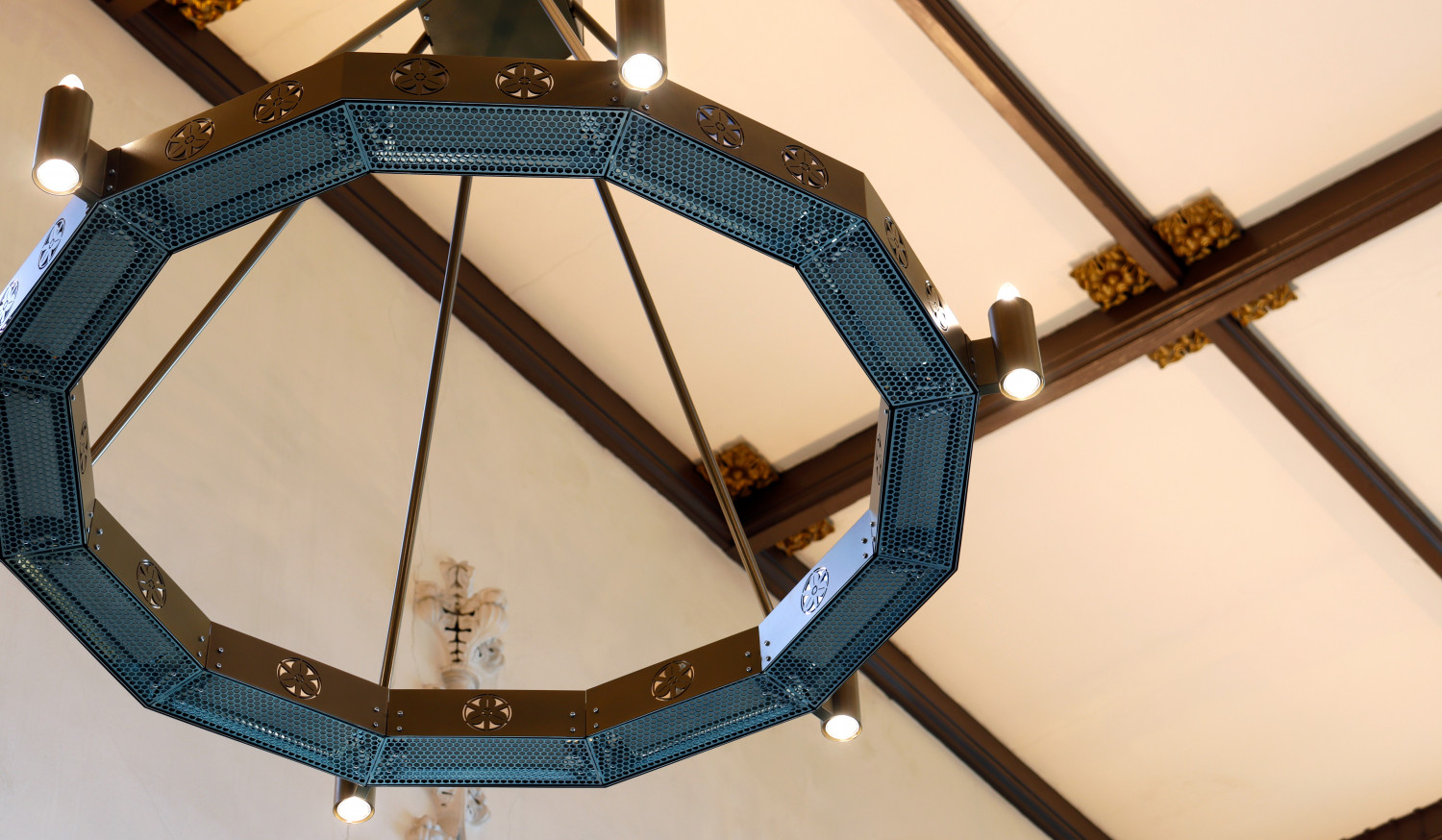A Bristol church has solved one of the biggest problems a church can face – how to achieve affordable low carbon heating.
Trialling innovative new radiant heating chandeliers over the winter, St Matthew's Church in Kingsdown has enjoyed improved heating comfort, with reductions in carbon emissions and much lower running costs, compared to their gas heating system.

With increasing carbon efficiency of the National Grid, the success of this trial looks set to play a key role in achieving the Church of England’s net zero targets.
The new fittings were conceived by Architect Simon Pugh-Jones, who recognised that radiant heating is a good theory for churches but one which has often been poorly delivered.
Simon said: "I could see that targeted, instant radiant heating could be a game changer, but it had the reputation for unattractive fittings and very harsh heating effects."
Simon took sketch concepts to Herschel Infrared, and that collaboration led to prototypes and then the working trial at St Matthew’s.

Paul Morey, CEO and Founder, Herschel Infrared Ltd. said: “Initial tests of the prototype exceeded our expectations. The fitting looked amazing, and the effect was like a gentle bubble of heat. We knew we were onto something and that we needed to try them in a real church setting.”
Permission was granted for a 2-year trial at St Matthew’s. The congregation, already passionate about the environment, were hugely enthusiastic, and despite the two very cold spells of the winter they committed to keeping their gas heating turned off. Their feedback was resolute – they loved the fittings, enjoyed the comfort and appreciated the carbon reduction.
Simon explained one unexpected outcome: “We knew we’d achieved a low carbon heating solution that had a lower installation cost than the alternatives, but we expected higher running costs because of the change from gas to electricity, especially during the energy cost crisis.”
But in fact the trial showed that the system is so efficient that the running costs came down too.


Andrew Wood, Treasurer at St Matthew's, said: “The chandeliers are clearly different, but people have felt warm even throughout the coldest period back in January. For us, the costs can be as low as £10 per Sunday service to run the radiant heaters for one to two hours. In comparison the gas system, which must run on full for many hours in advance of a service, could be costing us up to £100 per service on cold days.”
The trial has been evaluated independently and the published results confirm that the chandeliers deliver the good theory of radiant heat without the ‘harsh heat’ problems of the past. The new fittings are now manufactured by Heschel Infrared using aerospace-grade aluminium in their own production facilities near Bristol. They can be adapted to different environments with bespoke colour finishes, light fittings etc and require no annual servicing.
Simon added: “The trial shows that this works. If it works here, it could be an excellent means of zero carbon heating for other churches. There are roughly 16,000 Anglican churches in the UK and around 42,000 churches of all denominations.
“In the context of a cost of energy crisis, this could save a lot of money and enable church buildings to stay financially viable. In the context of a climate crisis, this could be a huge step towards net zero - a means by which parishes can act to make a real difference to the planet.”
To find out more about the heating system, visit the Herschel website, or hear more about the project at St Matthews, watch the video here.
You can also read the full report here.